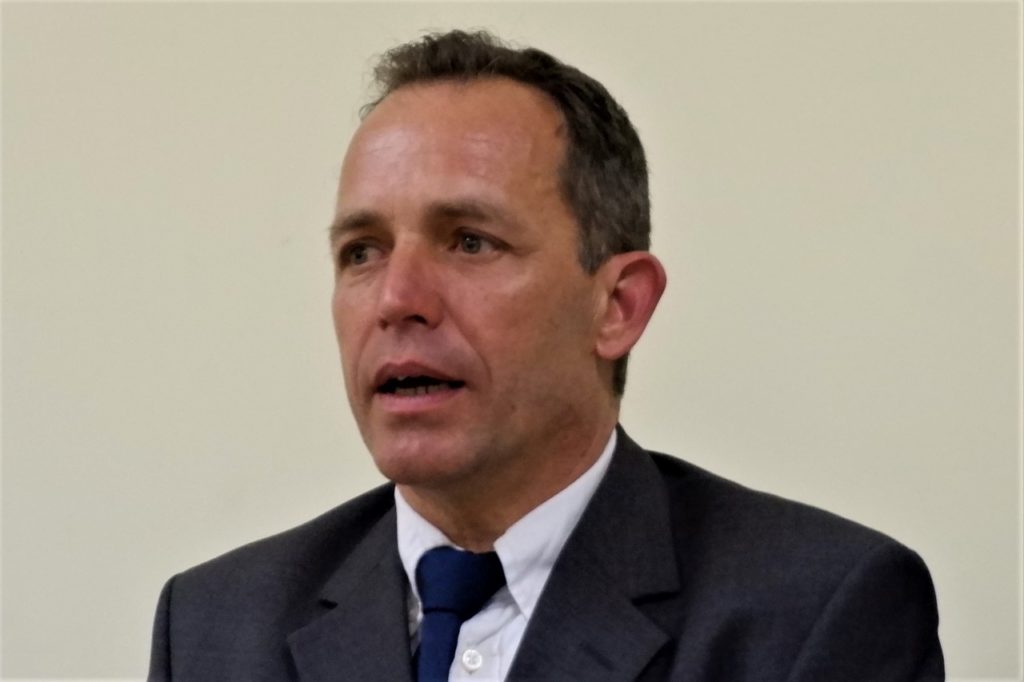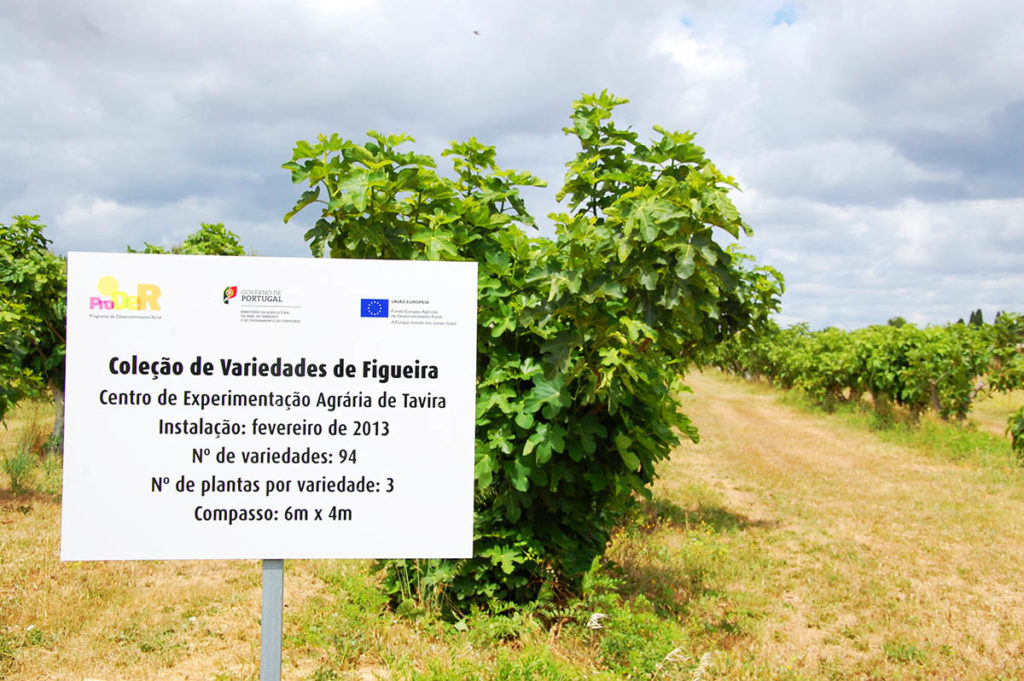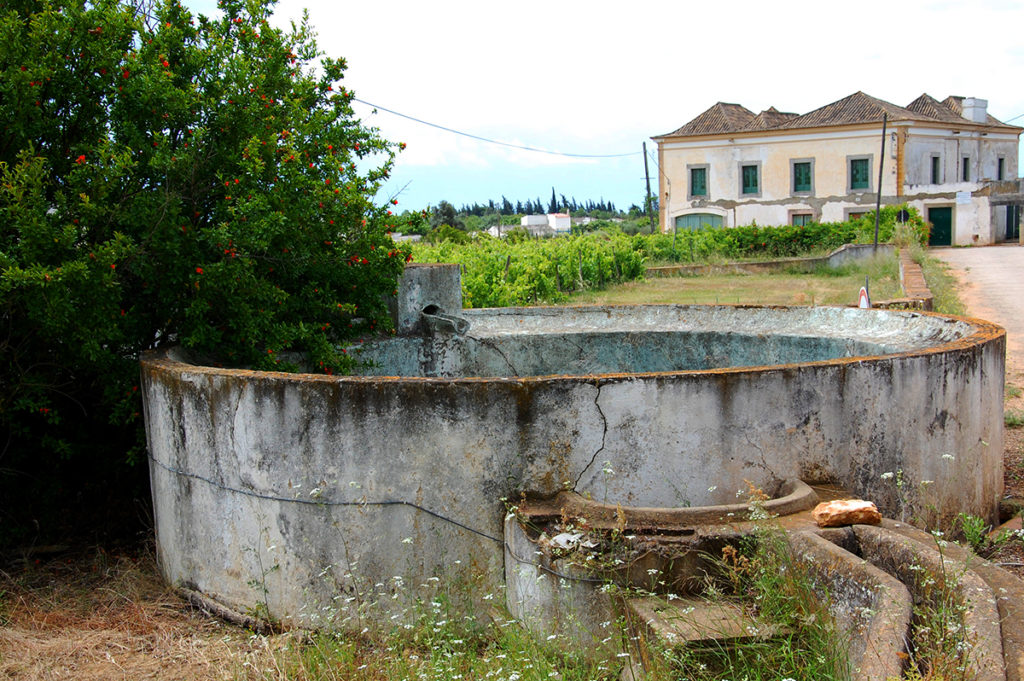Projects to improve and bring the community closer to the Agrarian Experimentation Center (CEA) in Tavira abound. What is lacking is money to make them happen, funding that can only arise if "an expanded partnership" is created around this former agrarian post, where a valuable and unique collection of traditional Algarve fruit trees is located, believes the Regional Directorate of Agriculture and Fisheries (DRAP) in the Algarve.
DRAP took advantage of the most recent meeting of the Regional Commission of the Mediterranean Diet, held on 17 September, to launch a challenge to the various entities that comprise it, so that they can help it to make more of the CEA in Tavira.
“We have to rehabilitate the experimental center. For this, we need robust funding sources, as it is necessary to recover buildings and buildings, paths, old irrigation systems, waterways and waterways, among other infrastructures. On the other hand, we need to admit young, qualified people, to rejuvenate and increase the very small staff that we have there», said Pedro Valadas Monteiro, regional director of Agriculture and Fisheries, in statements to Sul Informação.
“We have a 29-hectare center. Alone, we don't think we're going there. Therefore, we are calling for the constitution of a partnership or a network that brings together the entities that are part of the commission», he added.
The partners Pedro Valadas Monteiro refers to are the CCDR of Algarve, who chairs the commission, but also the Regional Directorate of Culture, Algarve Tourism, Câmara de Tavira, University of Algarve, hotel schools, In Loco and the Ciência Viva network, among other entities.
At the meeting, DRAP told the other entities that "we have a center with problems, but which has countless potentials and is even embedded in the heart of the representative community of the Mediterranean Diet in Portugal, which is Tavira".
This potential can be used if there are more entities involved.

DRAP's main objective is “to rehabilitate the center and continue and expand the work we already do with traditional fruit trees – collection, prospecting, characterization, etc. - eventually increasing the area dedicated to them in Tavira».
"On the other hand, we propose that the competence center of the Mediterranean Diet be installed at the CEA in Tavira, with an interpretive center component, in addition to the education and training part," he told the Sul Informação Pedro Valadas Monteiro.
After all, «as soon as the Portuguese candidacy of the Mediterranean Diet for Intangible Heritage of Humanity was approved by UNESCO, one of the initiatives that was planned was the creation of a competence center».
Another desire of DRAP is «to take up an old project, that of creating a museum in the former agrarian post, dedicated to the rural world of the Algarve, under a protocol signed between the Regional Directorate and the City Council».
“I even proposed going to fetch the assets of the recently deactivated Industrial Farense factory. The unit was relocated and the old machinery I believe is in the custody of Culture, but they have no place to put it», said the regional director for Agriculture and Fisheries.
So, if the necessary funds are found to create this museum, “we have many buildings there that can be used to house a permanent exhibition of the machinery that was used in the carob industry. And whoever says this, says others. There is the former estate of the cooperative in Lagoa and the machinery of the mill in Santa Catarina, which was installed in the place where the Zero Museum is being created, for example».
Projects for CEAT do not stop there. DRAP also made a point of inviting Ciência Viva to be present at the meeting, as one of the initiatives it cherishes involves this entity.
«A new generation centers are now emerging, the so-called Quintas de Ciência Viva. We proposed to install the Quinta da Dieta Mediterrânica here and the idea, in principle, was well received”, assured Valadas Monteiro.

DRAP also wants to create an urban vegetable garden area within CEAT's facilities, under a protocol to be signed with the Chamber of Tavira.
“The idea will not be to create social gardens, although the City Council may allocate part of the ceded area for this purpose. We want to give the opportunity to anyone who is interested in having a piece of land to farm. I think it is important to develop this other dimension, of agriculture as a leisure activity, recreation and even the promotion of mental health».
Despite admitting that this is in line with what the Citizens movement for the CEA of Tavira has been asking for, Pedro Valadas Monteiro made it clear that this project “will only advance with the involvement of the Chamber”.
“We are not going to make direct protocols with citizens' movements. What we will do is a protocol with the Chamber, as it happened in Faro. Then, if the municipality wants to sign an agreement with In Loco or any other association, there is no problem at all,” he added.
And it is precisely through In Loco that Citizens from the CEA of Tavira will continue to participate in this project, as they always wanted.
At the meeting of the Regional Commission of the Mediterranean Diet last week, some of the proposals of this civic movement, whose action was decisive to bring down a project that foresaw the crossing of the CEA of Tavira by a road, were put for consideration by Associação In Loco, with whom Citizens from the CEA of Tavira maintain a «privileged relationship».
The proposals "were considered of greatest interest, namely the one aiming at the creation of an urban vegetable garden in Tavira, under the coordination and management of DRAP, constituting a pole where conviviality is practiced and good practices of healthy eating are disseminated", assured the movement.
The members of Citizens by CEA de Tavira also propose to «promote training and dissemination actions on agri-environmental themes», under themes such as “Good environmental and agricultural practices, with a special focus on organic farming”, “A healthy eating”, “The defense and preservation of our biodiversity” and “The protection of the environment and minimizing the risks of climate change”.
Meanwhile, the group of citizens is still waiting for the DRAP to schedule a hearing, following a "joint work" they did with technicians from this entity, to whom they presented several collaboration proposals for the revitalization of the experimental center.
For now, the different projects proposed by DRAP are just ideas, although it was already decided, at last week's meeting, «to create a working group, composed of elements from different entities, to identify potential sources of funding», concluded Pedro Valadas Monteiro.
Help us to do the Sul Informação!
Contribute your donation so that we can continue to make your journal!
Click here to support us (Paypal)
Or use our IBAN PT50 0018 0003 38929600020 44



















Comments